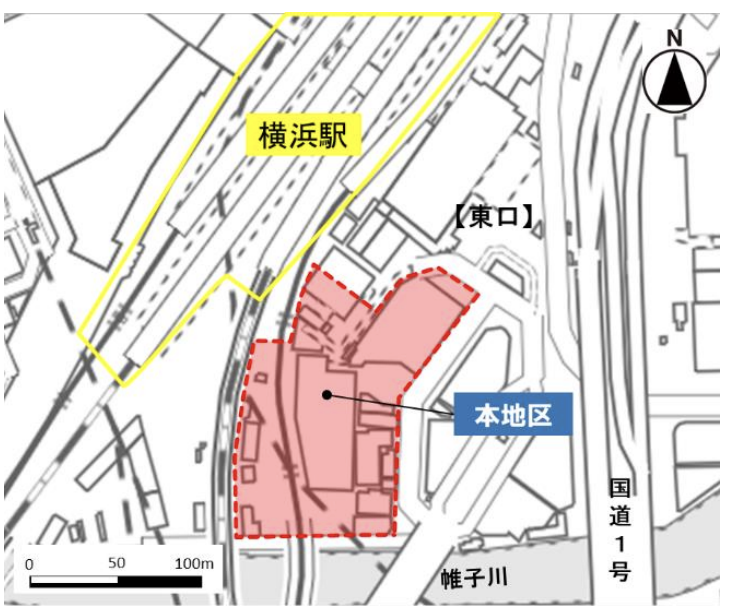The success or failure of real estate management depends on how systematically property management operations are understood and properly outsourced. This report organizes daily management, legal, and accounting practices, and covers the points required by the Rental Housing Management Business Law and the latest DX case studies. We visualize "what should be entrusted to a management company" and provide owners with guidelines that allow them to focus on asset management with peace of mind. Please feel free to contact INA&Associates K.K. for a more specific management plan and management system consultation.
What is property management services?
Property management business" is a business that is commissioned by the owner (lessor) of a rental property to maintain and manage the property and manage the rent and other finances. It is legally defined as a "rental housing management business" and is considered to be a business that performs maintenance and preservation of the building andfinancial management of rent, security deposits, common service fees, etc. on behalf of the owner. However, businesses that "only" manage rent and other finances are not included in the "rental housing management business" under this law. In short, a specialized company undertakes various tasks associated with rental management (tenant relations, facility management, rent collection, etc.) on behalf of the owner.
These property management companies are indispensable for owners who live far away or have a large number of properties. In fact, a large number of management companies are active throughout Japan, and as of 2023, there are approximately 8,943 rental housing management companies registered with the Minister of Land, Infrastructure, Transport and Tourism, with approximately 7.9 million units under their management. With the recent enactment of the " Rental Housing Management Business Law," the scope of work and obligations of management companies have been clarified, creating an environment in which both owners and tenants can feel secure in entrusting their properties to these companies.
Main Business Fields of Property Management Companies
Property management companies perform a wide variety of tasks, which can be broadly categorized into daily management, legal (contract) management, and accounting/financial management. Let's take a look at the specifics of each of these areas below.
Day-to-day management
Day-to-day management of properties and tenants on behalf of owners. The main focus is on handling day-to-day matters, such as responding to tenant communications and maintaining the property.
-
Tenant Relations: Responds to inquiries and complaints from tenants and handles complaints of neighborhood problems and defective facilities. If there are complaints about noise, water leaks, strange odors, pet issues, etc., we will promptly deal with them to ensure a comfortable life for the tenants and asset preservation for the owner. Entrusting the responsibility to an experienced management company greatly reduces the owner's mental burden.
-
Tenant Recruitment and Contract Procedures: When vacancies occur, we recruit new tenants on behalf of the owner. We set appropriate rents, select advertising media, conduct previews, screen prospective tenants (checking income and credit information), and, once a tenant is found, proceed with the lease contract signing process. This includes the preparation of contract documents, explanation of important matters, delivery of keys, and explanation at the time of moving in.
-
During the contract: During the tenancy, we will deal with equipment malfunctions, arrange for repairs, and conduct periodic inspections and cleaning of the building and facilities. We maintain the aesthetics of the property through daily management such as cleaning of common areas (cleaning of corridors, entrances, garbage disposal areas, etc.) and planting management to maintain a comfortable living environment for tenants. We outsource the maintenance of facilities that require statutory inspections, such as water supply, drainage, and firefighting equipment, to specialized contractors for proper upkeep and management.
-
Rent collection and arrearage reminders: We collect monthly rent from tenants and manage the remittance of rent to the owner. In many cases, tenants are required to join a rent guarantee company so that they can receive replacement payments from the guarantee company in the event of nonpayment. However, the management company will take care of the initial response (contacting the tenant to remind them and managing the delinquency situation) until the tenant is notified by the guarantee company.
-
When a tenant moves out, the management company will attend the tenant's departure and inspect the room to determine any damage. We will settle the security deposit on behalf of the tenant in accordance with the "Guidelines for Restoration to the Original Condition" issued by the Ministry of Land, Infrastructure, Transport and Tourism, and will properly reimburse the tenant for repair expenses. After the tenants move out, we arrange for cleaning and remodeling work as necessary to restore the property to its pre-tenant condition and prepare for the next round of applications.
As described above, we provide comprehensive support for a wide range of daily management tasks, from dealing with tenants to managing building facilities, matters that require time and expertise for owners to handle on their own.
Legal and contract management services
This is a service in which the management company acts as an agent and provides support for contract and legal procedures related to rental management. This is a field that requires expertise in drafting contracts, complying with laws and regulations, and responding to legal issues when they arise.
-
Preparation and management of contract documents: The management company prepares contract documents for new lease contracts and renewals, and prepares important item descriptions. As a real estate expert, the management company ensures that the contract complies with the latest laws and regulations, and includes all the necessary information in the contract. Especially in recent years, lease contracts can now be concluded electronically, so that the contract can be completed online as well as in person.
-
Explanation of Important Matters: When signing a contract with a tenant, we provide an explanation of important matters (detailed explanation of the property and contract details) in accordance with the Building Lots and Buildings Transaction Business Law. Also, when entering into a management contract with an owner, it is now the duty of the management company by law to provide a written explanation of important matters regarding the management details and fee structure in advance. This is a measure to ensure that the owner has a correct understanding of the contents of the management contract and can entrust the management of the property to the company with peace of mind.
-
Contract Renewal and Termination Procedures: We will proceed with the procedures for renewal of the lease upon expiration of the lease term or, in the case of non-renewal, for termination and surrender of the lease. We facilitate the administrative procedures on your behalf, such as drafting the renewal contract, collecting the renewal fee, and sending the notice of termination. If necessary, we also negotiate with tenants who are in breach of contract or in arrears to terminate the contract or vacate the property, and provide legal advice and liaise with specialists (lawyers).
-
Compliance with laws and regulations and risk management: We ensure proper management in accordance with laws and regulations related to rental management (e.g., Land and Building Lease Law, Consumer Contract Law, and Fire Service Law). For example, we follow the Ministry of Land, Infrastructure, Transport and Tourism's guidelines on restoration of properties to their original condition to prevent problems, check advertising when recruiting tenants to ensure that there are no violations, and prevent anti-social forces from moving into the property in accordance with the Gang Exclusion Ordinance. In the unlikely event that a lawsuit or dispute with a neighbor arises, the management company will act as a point of contact to sort out the situation and, if necessary, work with specialized legal counsel to deal with the situation.
Accounting and Financial Management
This service involves proper management of the flow of money in rental management, remittance and reporting to the owner, and tax support. This is an important role in managing the owner's income and expenses on behalf of the company.
-
Rent revenue and expense management: This service manages the collection of monthly rent, common service fees, parking fees, etc., and remits (settles) the money to the owner. As a collection agency service, the management company receives the rent once and remits it to the owner after deducting a predetermined management fee. In the event of a delay in payment from the tenant, the company will issue a reminder, and if the delinquency is prolonged, it will also proceed with the billing procedures to the guarantee company. Rent control data is strictly recorded in accounting software, etc., so that it can be immediately identified which property and contract rent is due.
-
Security Deposit and Settlement Deposit Management: We also manage the security deposit received at the time of moving in and the settlement deposit that is due at the time of moving out. The security deposit is legally the property of the owner, but the management company keeps it in an account and settles it with the restoration costs when the tenant moves out. If the security deposit does not cover the cost of repairs, the management company also handles additional claims and the return of excess security deposits in an appropriate manner. These deposits are legally required to be segregated and managed in a dedicated account separate from the management company's own account to prevent misappropriation of owner assets.
-
Expense management: We also act as an agent for payment of expenses necessary for property maintenance and management. For example, electricity and water bills for common areas, regular cleaning fees, repair costs, etc. may be temporarily paid in advance by the management company and offset against monthly rent income to settle the account. Not only regular expenses but also occasional repair costs are paid after consultation with the owner and recorded in the account book. The income and expenses of each property are reported on a regular basis and, as described below, the owner is required to report at least once a year on the status of management (income, expenses, and complaints).
-
Reporting and Tax Assistance: Monthly or quarterly income/expense reports are prepared and submitted to the owner, including rent received, expense details, and commission deductions. On an annual basis, provide a summary of rental income and expenses for the year and issue an annual income/expense report to serve as a reference for tax returns. If necessary, we will also work with a tax accountant to provide support regarding the reporting of rental income, including the recording of depreciation and necessary expenses. In the case of owners residing overseas, we also act as an agent for the payment of withholding taxes and as a tax agent. These accounting services have the advantage of freeing owners from complicated financial management and allowing them to focus on their core business or other investments.
Summary of Key Points of the Rental Housing Management Business Law
The Law Concerning the Proper Management of Rental Housing (Rental Housing Management Business Law), which went into effect in June 2021, imposes new obligations and systems on management companies. The following is a summary of the main points that owners should be aware of.
-
Introduction of a registration system: Companies engaged in the rental housing management business that manage 200 or more units are required to register with the Minister of Land, Infrastructure, Transport and Tourism (registration is optional for companies managing less than 200 units). Registered operators are subject to various obligations and are subject to penalties if they continue to operate without registration. 9,000 companies have completed registration by June 2022, as mentioned above.
-
Obligation to assign a business manager: All registered rental property managers must have at least one business manager with expertise and experience in "rental housing management" at each of their offices. To become a business manager, the registered property manager must meet certain qualifications and practice requirements, such as being a nationally certified "rental real estate business manager" or a licensed real estate transaction agent. This is intended to improve the expertise of each management company and establish a legal compliance system.
-
Obligation to explain important matters before entering into a management contract: When a management company enters into a new management contract with an owner, it is obligated to explain important matters in advance by delivering a document describing compensation, specific tasks, and implementation methods, etc. before the contract is concluded. In addition to face-to-face meetings, online explanations of important matters (IT explanation) and electronic delivery of documents are also permitted, allowing the owner to fully understand the details of the management contract before concluding the contract. This has the effect of preventing problems due to malicious solicitation or insufficient explanation.
-
Obligation to manage property separately: The law stipulates that the management company must clearly separate the owner's property, such as rent and security deposits, from the company's own funds. Specifically, a dedicated account is set up to hold the money entrusted by owners, and it is managed separately from the company's own business account. This makes it easier to preserve the owners' funds in the event of a mismanagement of the management company, and also increases transparency because the flow of money can be immediately identified on the company's books.
-
Obligation to report regularly to owners: The new law requires the management company to report to owners at least once a year on the status of management operations for each property it is entrusted to manage. The reports mainly include "income and expenditures, including rent collection status," "building maintenance and management status," and "whether or not there are any complaints from tenants and how they are being handled. This allows the owner to regularly monitor the operation of the property and facilitates communication with the management company. Many management companies provide detailed reports not only once a year as required by law, but also on a monthly or quarterly basis.
As described above, the Rental Housing Management Business Law raises the level of service quality and reliability of management companies. For owners, outsourcing to a registered company provides a certain level of peace of mind.
Examples of DX in Property Management
In recent years, the wave of digital transformation (DX) has extended to property management, and the use of IT technology is improving business efficiency and services. Here we introduce some of the latest DX case studies in Japan.
-
Property Management Cloud: Traditionally, managing property information and contract documents tended to be complicated with paper and Excel, but more and more companies are adopting cloud-based rental management systems. For example, a major real estate company has introduced **"Canary Cloud "** and reported that about half of the work of contacting tenants and pursuing customers has been automated, significantly reducing the workload of the staff in charge. The centralization of contracts and customer information has also facilitated information retrieval, enabling even a small number of staff to manage a large number of properties without errors, thereby improving productivity.
-
Online Contracts and IT Setsuetsu : Lease and management contracts are rapidly becoming electronic, and since the lifting of the ban on electronic contracts in 2022, contracts signed using electronic signature services and online important matter explanations (IT Setsuetsuetsu) using video conferencing systems have become common in the real estate industry. According to a survey conducted by Ierabu Group, by 2023, the percentage of end-users** using electronic contracts will have doubled from the previous year (from 9.1% to 18.0%)**, and paperless contracts are becoming more widespread, especially in the leasing sector. Online contracting allows completion of procedures without the need to visit a store, making it possible to smoothly accommodate distant owners and tenants as well as busy working households.
-
AI-based tenant response: Increasingly, artificial intelligence (AI) technology is being used to automate and upgrade responses to inquiries from tenants and prospective tenants.
-
Smart locks: DX is also extending to physical key management. An increasing number of management companies are installing smart locks that can be unlocked with smartphones or IC cards in their rental properties, thereby reducing key delivery and loss problems.
In addition to these examples, various other DX initiatives are underway, such as remote monitoring of building facilities using IoT sensors and automation of routine office work using RPA (software robots). DX allows management companies to allocate their labor-saving time and effort to higher value-added tasks, such as making proposals to owners and planning measures to increase the value of properties. Owners can also enjoy new benefits, such as the provision of an owner-only web service that allows them to view property status reports online.
Conclusion
Property management companies are responsible for a wide range of tasks, from day-to-day property management to contracts, legal affairs, and accounting. The law has clarified the scope and responsibilities of these tasks, and by assigning professionally qualified personnel, an environment has been created in which owners can feel secure in entrusting their valuable assets. By outsourcing to a management company, owners are freed from the stress of dealing with tenants and troubleshooting, and can focus on securing stable rental income. In addition, with the advancement of DX, services are becoming faster and more transparent, and the accuracy of property management is increasing. We hope that the contents of this column will help owners systematically understand "what is entrusted to a management company" and realize better rental management in cooperation with a reliable partner.

Daisuke Inazawa
Representative Director of INA&Associates Inc. Based in Osaka, Tokyo, and Kanagawa, he is engaged in real estate sales, leasing, and management. He provides services based on his extensive experience in the real estate industry. Based on the philosophy that “human resources are a company's most important asset,” he places great importance on human resource development. He continues to take on the challenge of creating sustainable corporate value.

.png)













